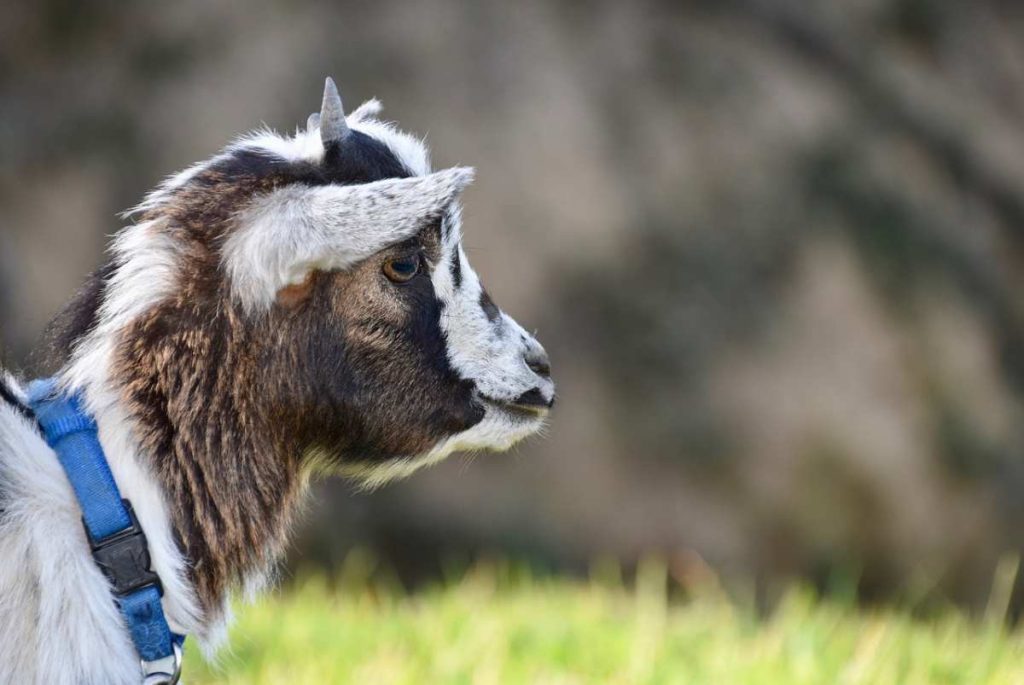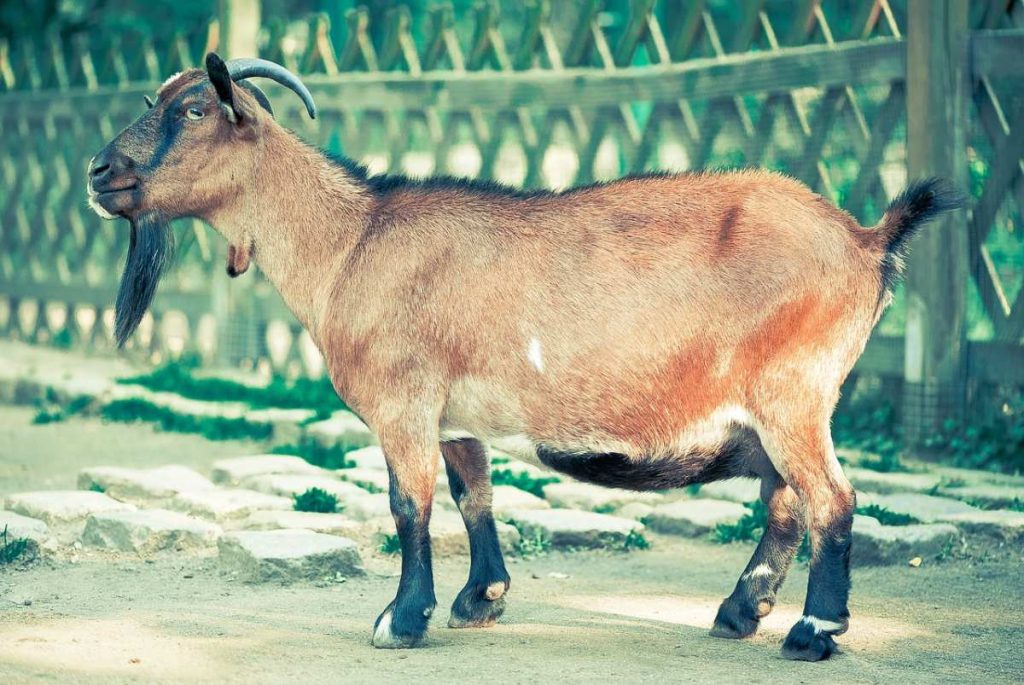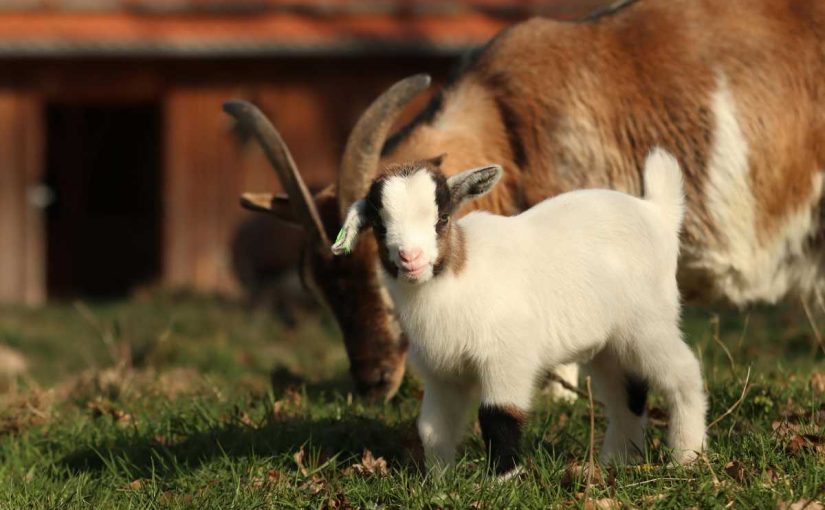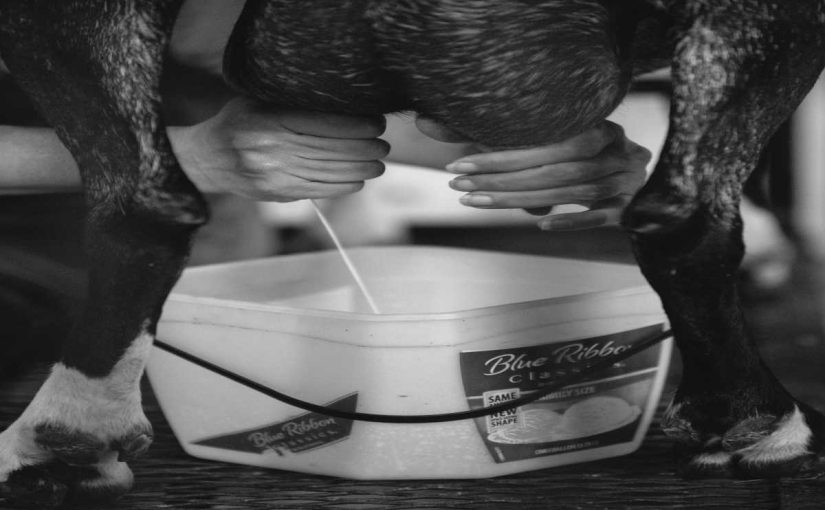The Nigerian Dwarf goat is a miniature breed originally from West Africa. They are descended from the larger West African goats, which were brought to the United States in the late 20th century. Nigerian Dwarf goats were first introduced to the United States in the 1950s, but it wasn’t until the 1980s that the breed started to become more popular, especially among hobby farmers. They were initially bred for their milk and eventually became a popular pet due to their size and temperament.
Nigerian Dwarf goats are recognized by the American Dairy Goat Association (ADGA) and are often used in dairy production due to their rich milk. They are typically smaller than standard dairy goats, with adult females weighing around 60-75 pounds and males reaching up to 100 pounds. Despite their small size, they are known for their hardiness and adaptability in various climates, making them a great option for both urban and rural farms.
Physical Characteristics of Nigerian Dwarf Goats
Nigerian Dwarf goats have a distinct and charming appearance. They are compact, muscular goats with short, smooth coats that come in a variety of colors and patterns. Common colors include black, brown, white, and even more exotic colors such as blue-eyed or tri-colored goats. Their ears are erect, and they have a naturally rounded body with a short back. They are known for their expressive faces and large, dark eyes, which give them a friendly and approachable look.
One of the standout features of Nigerian Dwarf goats is their size. They are considered a miniature breed, standing at around 17-23 inches tall at the shoulder. Despite their small stature, they are sturdy animals that are well-suited for both breeding and milking purposes. Their small size makes them easy to handle and ideal for small spaces, which is one of the reasons they are so popular among hobbyists and families.
Personality and Temperament
Nigerian Dwarf goats are well-known for their friendly and affectionate personalities. They are curious, playful, and highly social animals that thrive in herds. While they are generally calm, they are also known for their mischievous side. They are intelligent and love to interact with their human caretakers, often forming strong bonds with them. Because of their friendly nature, they are easy to train and make great pets, especially for families with children. Their small size and gentle temperament make them less intimidating to handle compared to larger goat breeds.
Nigerian Dwarfs are also quite vocal. They will bleat to get attention, especially when they are hungry, excited, or simply want companionship. It’s important to note that while they are friendly, they do require social interaction with other goats or animals, as they can become lonely and stressed if isolated. This is why it is always recommended to keep at least two Nigerian Dwarf goats together.
Milk Production
One of the main reasons people choose to raise Nigerian Dwarf goats is for their high-quality milk. Despite their small size, these goats produce milk that is rich in butterfat and protein, making it ideal for making cheese, yogurt, and other dairy products. The milk from Nigerian Dwarf goats has a higher fat content than milk from many larger breeds, often reaching up to 6-10% butterfat, which is more comparable to that of goats in the dairy breeds.
An adult Nigerian Dwarf goat can produce anywhere from 1 to 2 quarts of milk per day, depending on their genetics, diet, and health. While they may not produce as much milk as larger breeds, their milk is considered to be of excellent quality for small-scale production. Their smaller size also makes them more affordable to raise compared to larger goats, as they require less food and space.

Feeding and Care
Like all goats, Nigerian Dwarf goats need a balanced diet to stay healthy and productive. Their diet should consist of fresh hay, pasture, and access to clean water. A combination of alfalfa or grass hay is ideal, along with a variety of vegetables and fruits as treats. It is also important to provide mineral supplements to ensure they are getting the necessary nutrients to maintain their health. Make sure to offer a high-quality mineral block or loose mineral mix that is specifically formulated for goats.
Additionally, Nigerian Dwarf goats need access to fresh grazing pasture. They are browsers, which means they enjoy foraging for shrubs, leaves, and other plants in addition to eating hay. Providing them with a variety of plants to nibble on will keep them happy and healthy.
In terms of shelter, Nigerian Dwarf goats do not require elaborate structures but do need protection from extreme weather. A simple three-sided shelter with a clean, dry area to sleep is usually sufficient. It’s important to ensure that the shelter is well-ventilated and that there are no drafts, as goats can be susceptible to respiratory illnesses.
Healthcare Needs
Nigerian Dwarf goats are generally hardy animals, but they do require regular healthcare. This includes vaccinations, deworming, and hoof trimming. Goats are prone to internal parasites, so regular deworming is essential to keep them healthy. Their hooves will also need to be trimmed every 6-8 weeks to prevent overgrowth, which can lead to foot problems.
It’s also important to monitor their overall health by checking their eyes, ears, and coat condition regularly. If you notice any signs of illness, such as lethargy, a decrease in appetite, or changes in behavior, you should consult a veterinarian experienced in goat care. Regular health checks will help ensure your Nigerian Dwarf goats remain in good condition.
Breeding Nigerian Dwarf Goats
Nigerian Dwarf goats are sexually mature at a young age, typically around 7-10 months, though it’s best to wait until they are at least a year old to breed them to ensure their health and development. Female goats, called does, can be bred once they reach around 70% of their adult weight. Male goats, or bucks, are usually ready to breed at a similar age but should also be in good health before being bred.
Breeding should be done carefully, as inbreeding can result in genetic issues and reduced vitality in the herd. It’s important to keep track of the lineage of your goats and avoid breeding close relatives. You may also want to consult with a breeder or veterinarian to ensure the best breeding practices.
When it comes to kidding (giving birth), Nigerian Dwarf goats are typically good mothers and can deliver twins, triplets, or even more. The gestation period for goats is around 150 days. After the kids are born, they should be kept warm and dry, and the mother should be given plenty of food and water to support her milk production.
Raising Nigerian Dwarf Goats for Profit
Nigerian Dwarf goats are a great option for small-scale farming or homesteading, particularly if you are looking to make a profit from raising goats. The breed is well-suited for small dairy operations, as their milk is prized for its high butterfat content. Many goat owners sell milk, cheese, and other dairy products from Nigerian Dwarf goats at local farmer’s markets or through direct-to-consumer sales.
In addition to dairy products, Nigerian Dwarf goats are often raised for their adorable appearance and make great pets. Goat shows and events have become increasingly popular, and Nigerian Dwarf goats are a common breed in these competitions due to their unique size, appearance, and performance.
Conclusion
Nigerian Dwarf goats are an ideal choice for small farms, hobbyists, and families looking to add goats to their homesteads. They are easy to handle, friendly, and productive, making them perfect for a variety of purposes, from milk production to companionship. With proper care, attention to health, and regular breeding practices, Nigerian Dwarf goats can be a rewarding and profitable addition to any farm or homestead. Whether you are interested in raising them for milk, showing, or simply enjoying their playful personalities, Nigerian Dwarf goats are sure to bring joy and productivity to your life.




